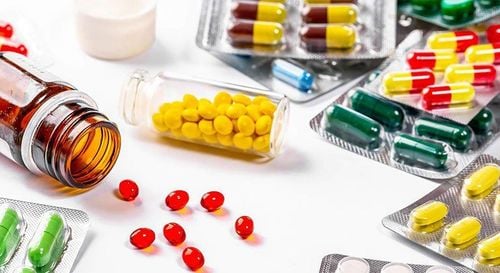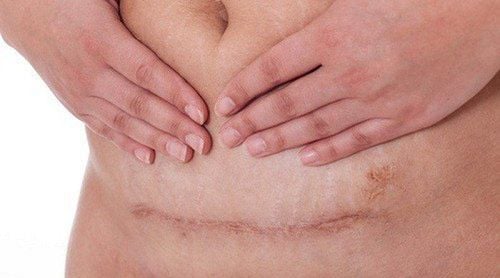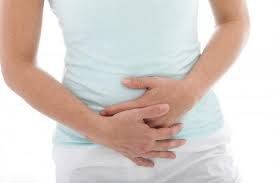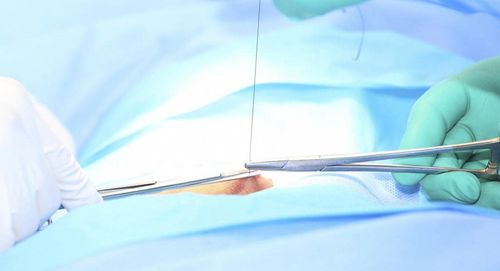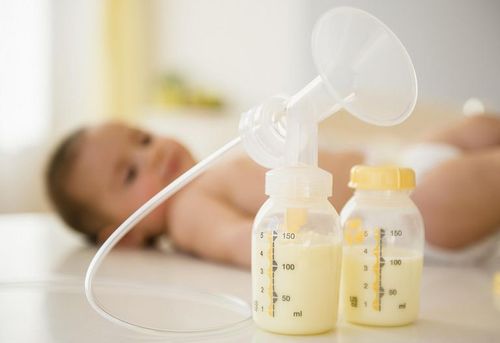This is an automatically translated article.
Although nutritional needs are similar, a nursing woman needs 500 more calories per day than during pregnancy, and it is important that the calories come from nutrient-rich foods. Using nutrient-rich foods to support breast milk production is important. In addition, eating healthy foods after giving birth helps you feel better both mentally and physically.
1. General knowledge about breast milk
Most moms know that it's important to follow a healthy, nutrient-rich diet while breastfeeding. Besides ensuring your health, it's essential to make sure your baby gets all the nutrients to grow.
With the exception of vitamin D, breast milk has all the ingredients a baby needs for the first 6 months. If a mother's diet is not supplemented with enough nutrients, it affects the quality of breast milk and your own health.
Breast milk provides 60 to 75 kcal / 100ml, which is made up of 87% water, 3.8% fat, 1% protein and 7% carbohydrates.
Unlike infant formula, the calorie content and composition of breast milk vary from time to time. Breast milk changes with each feeding to meet your baby's needs.
At the beginning of each feeding, breast milk contains more water to help quench the thirst of the baby. The final milk is thicker, with more fat and nutrients. In fact, according to a 2005 study, later milk contains 2 to 3 times more fat than colostrum. Therefore, in order for your baby to receive the most complete nutrition, it is important for your baby to finish off one breast before switching to the other.
2. Foods you should eat while breastfeeding
Breastfeeding what to eat? When you breastfeed, you always feel hungry. Making milk requires the body to increase the amount of calories in the body, it is estimated that an increase of about 500 calories, as well as an increase in the need for nutrients including protein, vitamins A, C, D, E, B12, selenium and zinc.
This is why while breastfeeding, eating a variety of nutrient-rich foods is so important for you and your baby's health. Choosing foods rich in these nutrients helps ensure that you get all the macro and micronutrients you and your baby need.
It is essential to eat a variety of foods, which will expose the baby to different tastes and later make the baby more receptive to solid foods.
There is no one ideal diet for everyone. The goal of nutrition while breastfeeding is that you eat a healthy, varied diet. Here are some nutritious food choices you should eat while breastfeeding:
Fruits Fruits are rich sources of many nutrients. They help relieve constipation that some mothers experience after giving birth. Try to eat about 2 servings a day while breastfeeding, including a variety of fruit.
The United States Department of Agriculture (USDA) recommends the following fruits because they are all excellent sources of potassium, some of which are high in vitamin A: cantaloupe, bananas, mangoes, apricots, prunes, oranges, red or pink grapefruit...
Vegetables and fruits Vegetables contain many antioxidants, vitamins, and some essential minerals. USDA recommends eating: spinach, kale and bok choy, carrots, sweet potatoes, pumpkin, tomatoes... While breastfeeding, eating the right amounts will help supplement the nutrients you need to keep your baby healthy. make milk.

Nuts Grains provide many nutrients, especially whole grains like brown rice. Everyone should try to eat 250 ml per day if you are breastfeeding an exclusively breastfed baby, or 200 ml if supplemented with formula. Certain cereals, such as quinoa, almonds , walnuts, chia seeds, and flaxseeds are high in protein, which is an essential nutrient when breastfeeding. Fortified cereals provide additional nutrients and are a good choice. It's best to eat whole grains with no added sugar.
Protein When breastfeeding, the body needs an extra 25g per day and a total of at least 65g per day. Experts recommend getting adequate protein as an important part of nutrition while breastfeeding. Some protein sources that mothers should refer to: peas, nuts, lean beef, pork and lamb, oysters, crabs and mussels, salmon, herring, sardines
Seafood is rich in acids Omega-3 fatty acids, support young brain development. Salmon and sardines are great choices because they are high in Omega-3s but low in mercury.
Lactating people abstain from other fish, such as longfin tuna, swordfish, shark and mackerel, which are high in mercury.
Dairy products Both pregnancy and lactation can deplete calcium from the bones, leaving mothers more likely to develop osteoporosis if they don't get enough calcium and vitamin D. Dairy products such as milk, yogurt or cheese are excellent sources of calcium and can be fortified with vitamin D. The sun is a natural source of vitamin D that anyone should take advantage of.
People who don't take dairy can get calcium from dark green leaves, beans and orange juice. The National Academy of Sciences recommends that people who are breastfeeding consume 1000mg of calcium per day.
Supplements Although a well-balanced, nutritious and healthy diet is an important part of a nursing mother's nutrition. However, for a few different reasons, she still needs vitamin and mineral supplements.
You should talk to your doctor before taking any herbs or supplements as many contain herbs and additives that are not safe for nursing mothers..
People on a diet or following a vegan lifestyle should be aware of certain vitamins and minerals that may be lacking in their diet.
Drink more water In addition to being hungrier than usual while breastfeeding, you will feel more thirsty.
When your baby suckles, oxytocin levels rise, this hormone stimulates thirst and helps ensure that you stay hydrated while breastfeeding.
It is important to note that each person's water needs will vary depending on factors such as activity level and intake. There are no specific figures for how much water a nursing mother needs.
If you feel tired or your milk supply is decreasing, you need to drink more water. One way to tell if you're drinking enough water is by the color and smell of your urine. If it is dark yellow and has a strong smell, it is a sign that you are dehydrated and need to drink more water.
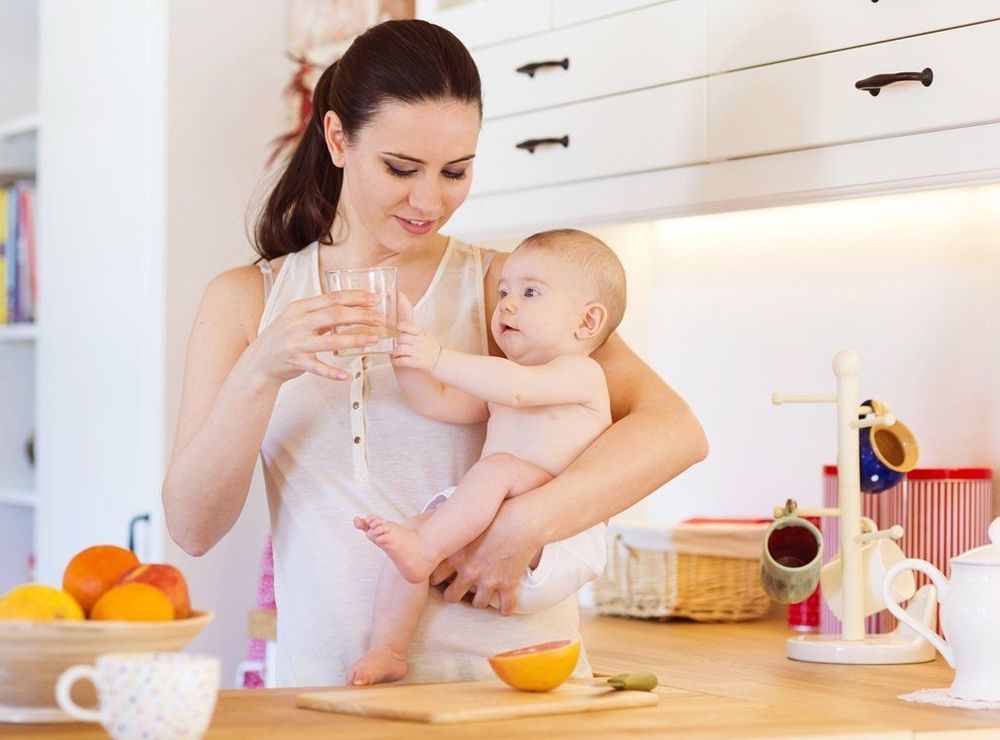
Các mẹ nên bổ sung nước vào chế độ dinh dưỡng khi đang cho con bú
3. Foods to avoid while breastfeeding
Breastfeeding abstain from what? The list of foods that pregnant mothers should avoid is long, so this is why mothers think they must also have a strict diet while breastfeeding. There are practically no foods that a nursing mother should completely avoid.
Most foods and drinks are safe, but there are a few foods to avoid while breastfeeding, such as foods you are allergic to. If you think something may be affecting your baby, consult your doctor for advice.
Caffeine Caffeine is at the top of the list of foods to avoid while breastfeeding. About 1% of the caffeine you consume is transferred to your breast milk, and research shows that it takes babies longer to metabolize caffeine. Caffeine affects your baby's sleep and your own.
Alcohol Alcohol can pass into breast milk at concentrations similar to those in the mother's blood. However, young children metabolize alcohol incompletely or only half as much as adults. Because drinking alcohol too close to the time of breastfeeding can negatively affect the health of the baby, should breastfeed after drinking at least 2 hours or preferably during breastfeeding should abstain from alcohol.
Doctors suggest no more than 0.5g of alcohol per kg of body weight, for a 60 kg mother, equivalent to 60ml of wine or 2 beers. After drinking 1 to 2 glasses of wine reduces milk production by up to 23%.
Fish Seafood is a rich source of protein and Omega-3 fatty acids. However, most seafood contains mercury or other contaminants. Exposure to large amounts of mercury through breast milk can be dangerous to a baby's developing nervous system. To limit your baby's exposure, while breastfeeding, you should abstain from seafood high in mercury, including swordfish, mackerel, and tilefish.
Fried foods Fried foods, processed meats are high in saturated fat and salt, which are nutrients that you should avoid while breastfeeding. Limit bacon, hot dogs, and deep-fried foods and instead use chicken, turkey, low-mercury fish, and lean meats.
High-sugar foods like candy, cookies and desserts, which can lead to weight gain, diabetes and fatigue, are foods you need to avoid while breastfeeding and later in life.
Please dial HOTLINE for more information or register for an appointment HERE. Download MyVinmec app to make appointments faster and to manage your bookings easily.




